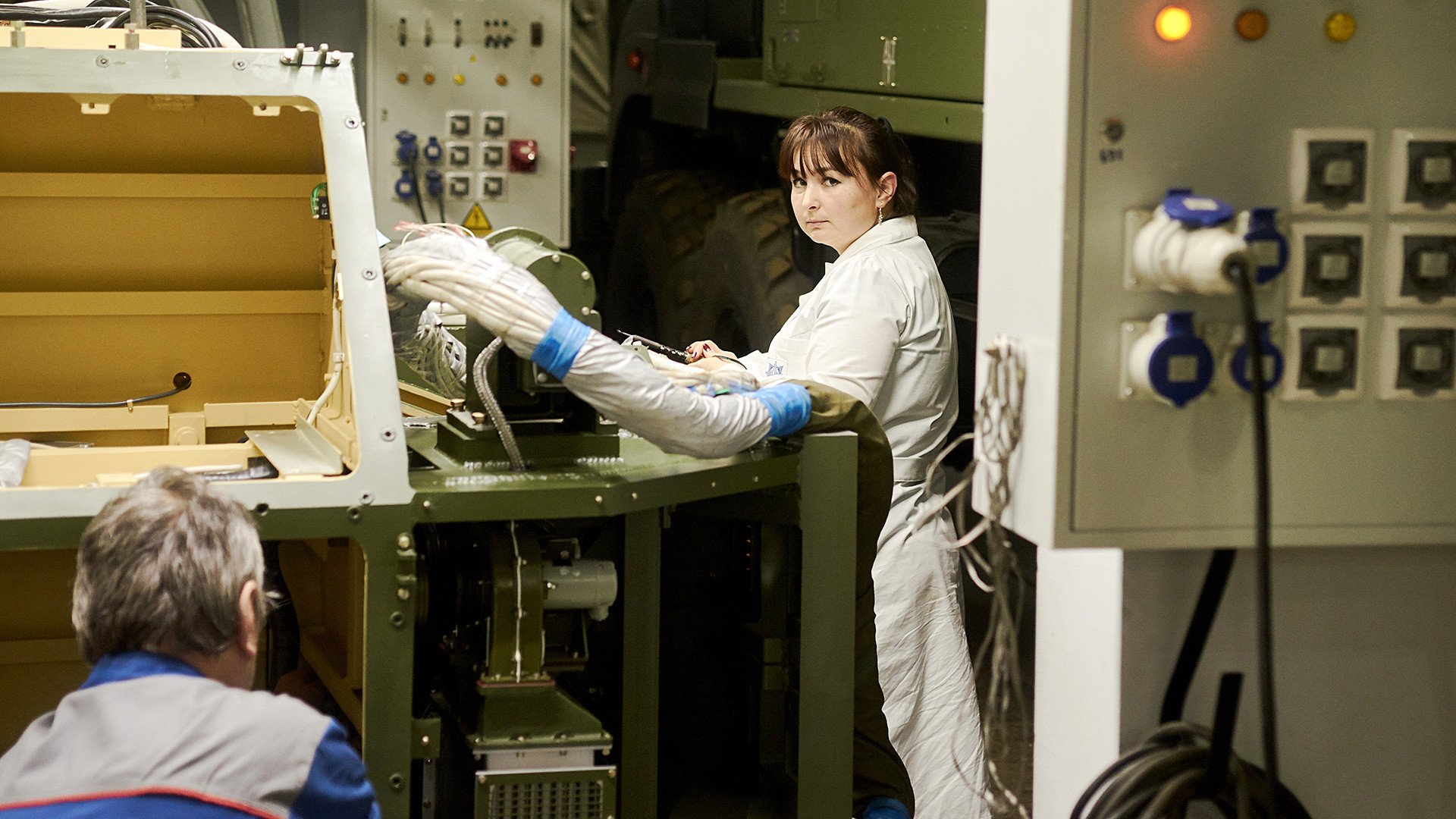
A look at Russia’s secretive air defense factory
Dmitry ErmakovIt’s Wednesday, midday: The car park is full and the snow has turned into a dirty black sludge. Ten meters away is the entrance area but no one goes there. The walls inside are lilac and turquoise, the ceiling is low and it is so quiet that I can hear the old fluorescent lamps humming on the ceiling. Occasionally people in overalls appear at two ATMs. Between me and them
Recently the Kupol Electromechanical Plant in Izhevsk (1,200 km east of Moscow) has started offering PR tours - journalists are taken around the "clandestine" workshops, their "veil of secrecy" slightly lifted. For the time being, though, industrial tourism is going through the stage of overcoming the Soviet tradition of hiding everything that can be hidden. Even if there’s no need for it.
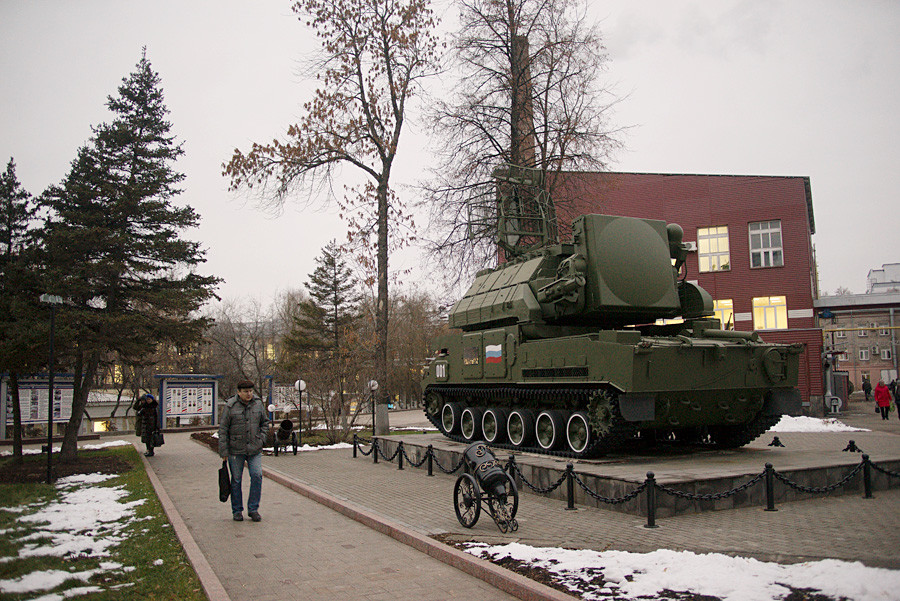
Kupol Electromechanical Plant in Izhevsk
Dmitry ErmakovSergei - a thin man with dark hair, wearing jeans, a jacket
Two young girls remain on the other side of the checkpoint. The others, quickly forgetting about the girls, pass through a courtyard and through a heavy iron door.
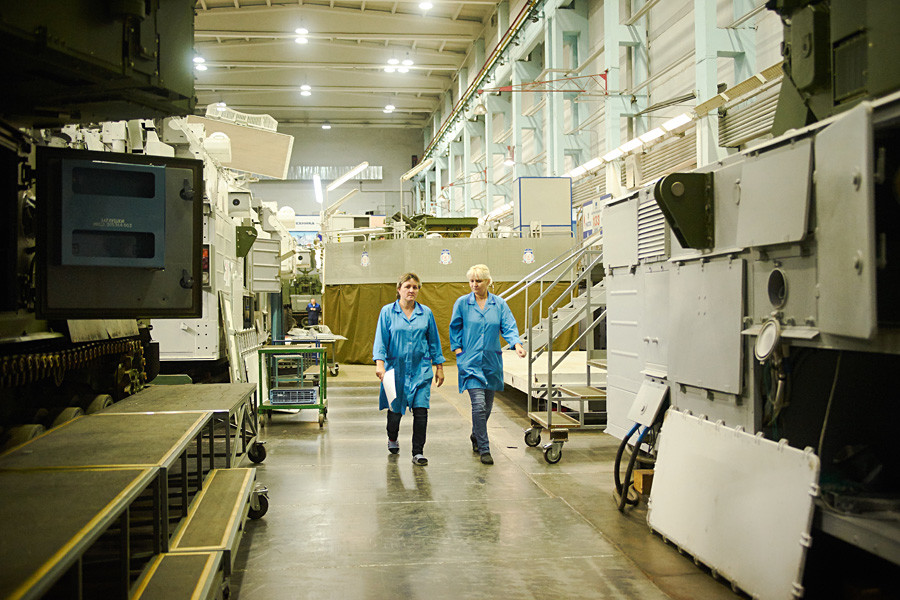
It is a 24-hour operation with two shifts, with each shift doing different tasks.
Dmitry ErmakovInside there’s a heavy, distinct smell of metal - it’s like sniffing a handful of small change. Behind some iron storage
"This is the metal processing area, but we won't photograph anything here," Sergei tells us.
Ahead is another door, then another, and another one. And then there they are
“They will now bring the Man to meet you,” Sergei barks.
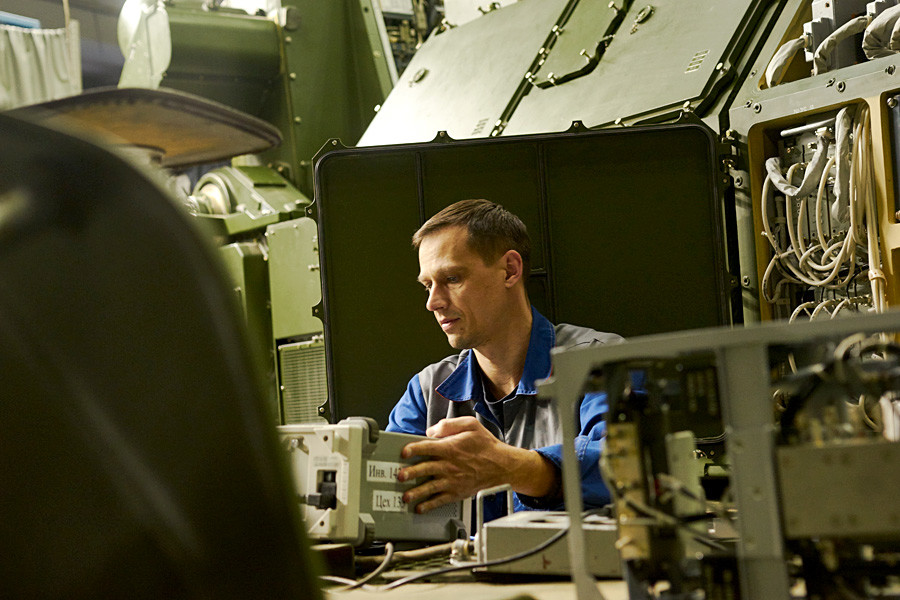
The workers, like surgeons, open something, take something out, tighten something, and put something back.
Dmitry ErmakovThe Man appears quickly. He is well-built and short with a smile that never leaves his face. He looks more like a good-natured allotment gardener whom you would ask for directions rather than a military systems engineer.
"The Tors have always been here [in the workshop] and I've spent all my life with these systems, all 35 years. We have been upgrading the Tor since it was first designed. There’s the Defense Ministry, there are special customers, and we also ship abroad. It is a 24-hour operation with two shifts, with each shift doing different tasks," Alexander Chirkov says, smiling at the Arctic version of the Tor-M2 standing nearby without the chassis that allows it to move around.
"It had a polar bear painted on it when we showed it at the May 9 parade in Red Square. Here it is, the beauty."
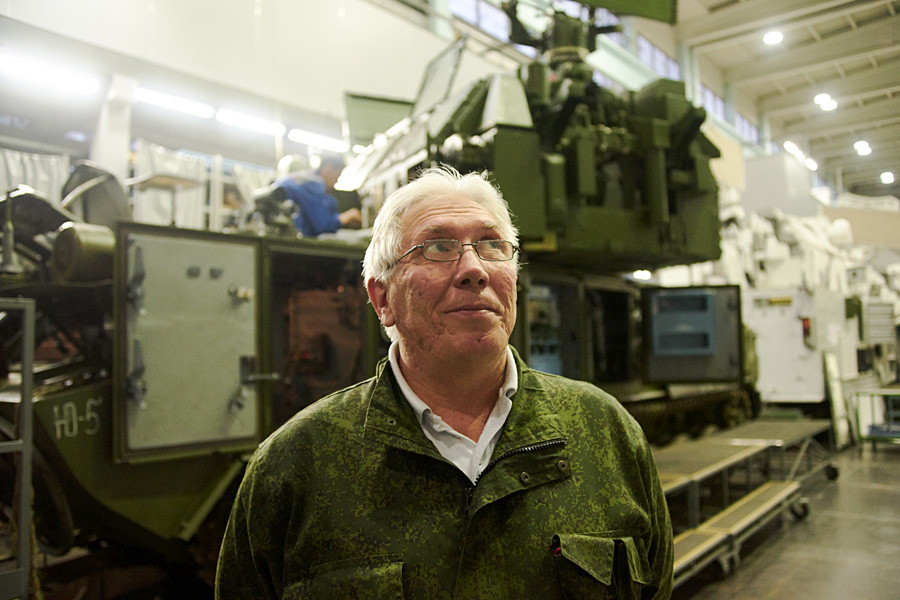
Alexander Chirkov
Dmitry ErmakovFifty-nine-year-old Chirkov talks
"The system is designed for low-flying and low-velocity targets. The ones that are difficult to detect. They are the most difficult targets. They fly over
He doesn't say how much one such system costs: An air defense missile system is always the subject of bargaining when it’s built for export. The variation can be huge. Chirkov assures us that he "honestly" doesn't know the price.
There is a huge banner in the workshop that reads: "Perfect hardware - reliable protection." During all his years at the Kupol
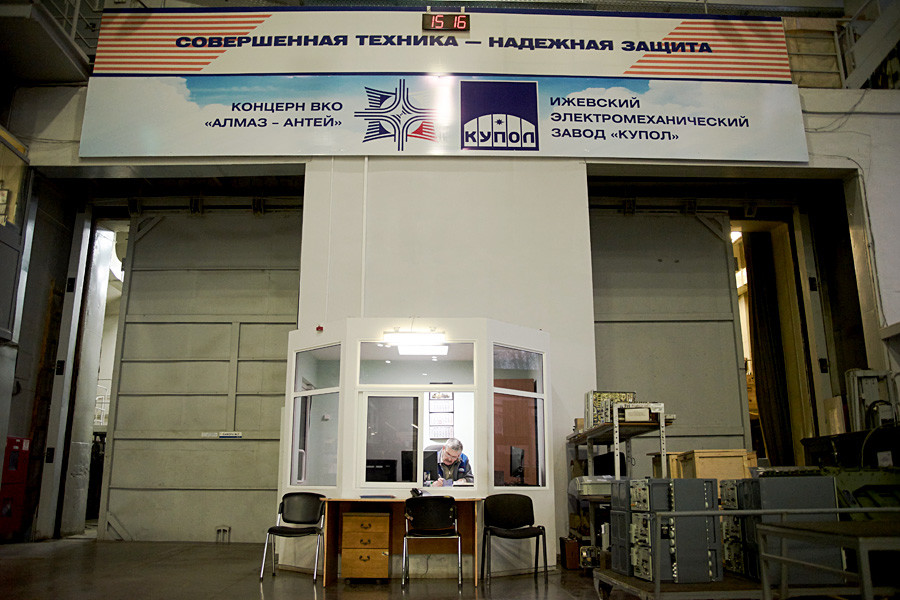
There is a huge banner in the workshop that reads: "Perfect hardware - reliable protection."
Dmitry ErmakovSergei the security man walks past, turning his head from left to right, looking for journalists wandering among the Tors.
"I've told them all the secrets," Chirkov says, trying to pull his leg.
"All of them?" Sergei laughs, but somewhat nervously. But these should be the least of his worries. Chirkov measures his words like a military man and pauses before giving an answer. For example, if you ask him about spies and spy-phobia, you'll hear him say: "There have been no spies. Have I ever been approached? No, I haven't. Have colleagues ever said anything they shouldn’t? No, they haven't."
Or:
"Are there things that you can't talk about even with your nearest and dearest?"
"Yes, there are."
"And what do you do about it?"
"Nothing. I don't talk about them. When you have spent all your life…," he starts
Chirkov has a rule: "Don't say too much. That is all." It is simply his mantra.
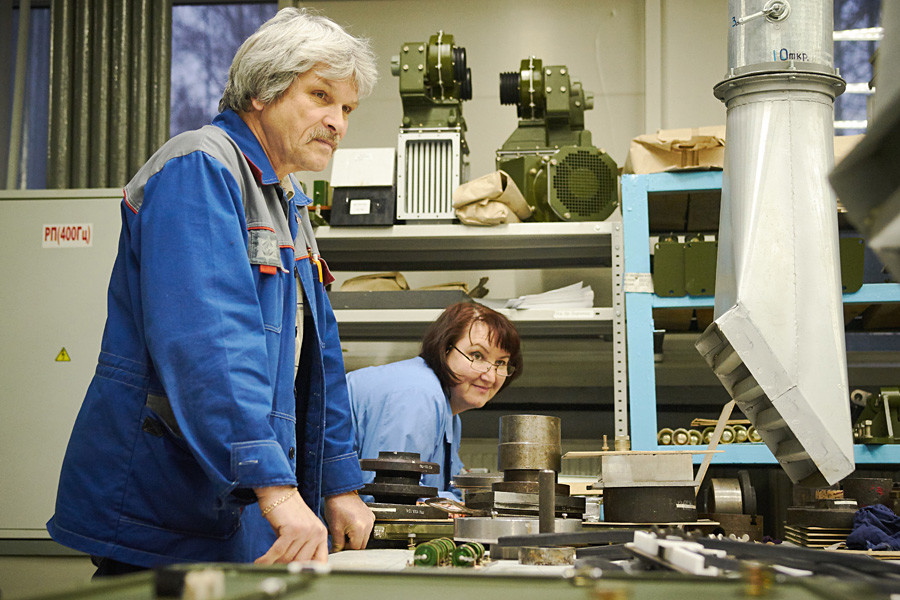
During all his years at the Kupol plant the situation turned bad only once - in the 1990s.
Dmitry ErmakovChirkov came to Kupol straight after graduating from a technical university - he was "allocated" here. In Soviet speak it means you worked where you were sent, no questions asked. In the catalog of industrial
"After
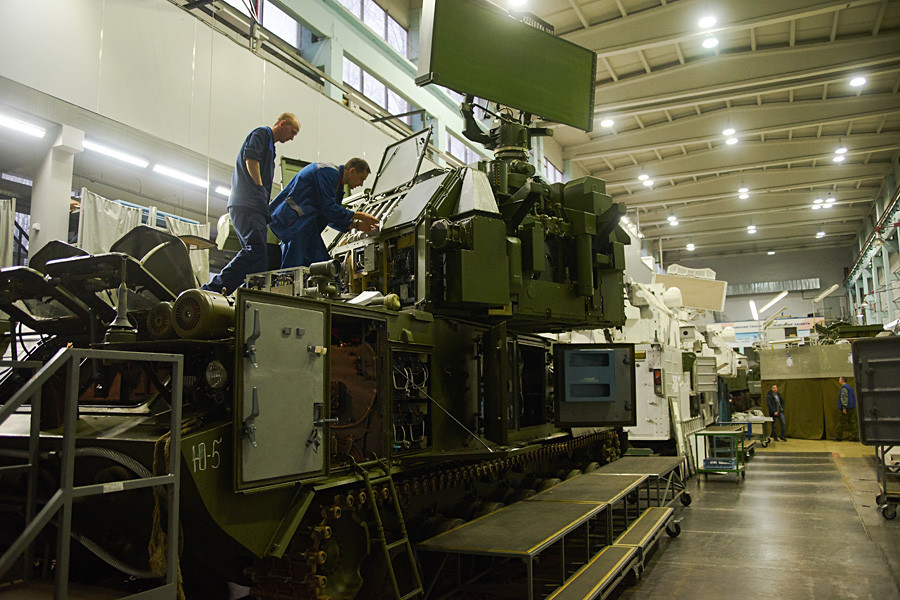
An air defense missile system is always the subject of bargaining when it’s built for export.
Dmitry ErmakovChirkov says he never wanted to move to another job. Moreover, they pay more here. But Izhevsk doesn't let him go anyway. Because he has his children and grandchildren and his apartment here… Because he was "born and bred" in Izhevsk. And, in actual fact, he loves his job.
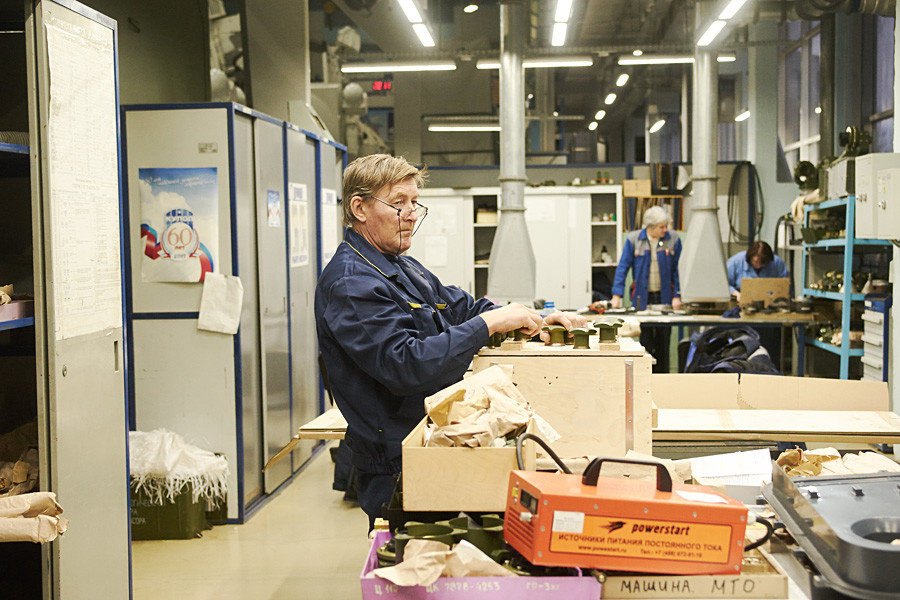
They came to Kupol straight after graduating from a technical university - was "allocated" here. In Soviet speak it means you worked where you were sent, no questions asked.
Dmitry Ermakov"I have only one dream. To travel. I still won't be able to travel to any capitalist country for five years after I retire. The whole of Europe is closed to me. And I love traveling. When I was by the Red Sea, I saw such wonderful things. Super! I posted on YouTube later how I stroked a moray eel."
Chirkov's eyes light up, and he has the smile of a Cheshire cat. He gestures against the backdrop of the Tor to show me with his hands how big his moray eel was. Sergei finally manages to bring everyone together in one group.
Once again we pass through Workshop No 133 where they process metal. For some reason, now, an hour later, you are allowed to film here.
"Any regrets?" I ask Chirkov who is pensively looking through me.
He replies - this time, immediately.
"Yes," is all he says. Although later, after the recorder is switched off, he will add that there are things more important than personal regrets. There are imperatives like "good deeds should have fists" - a Russian saying meaning that words have to be backed up with force
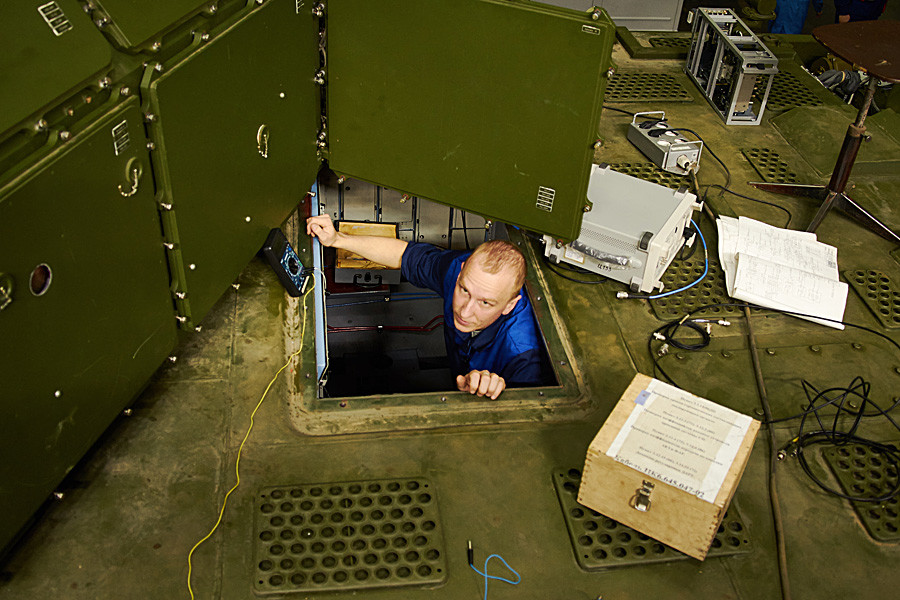
"There have been no spies. Have I ever been approached? No, I haven't. Have colleagues ever said anything they shouldn’t? No, they haven't."
Dmitry ErmakovIf using any of Russia Beyond's content, partly or in full, always provide an active hyperlink to the original material.
Subscribe
to our newsletter!
Get the week's best stories straight to your inbox